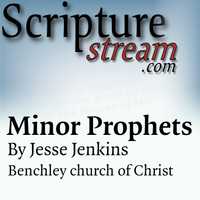-
Introduction
-
Nahum means “consolation.”
- The only consolation we read about in the book is that Assyria would no longer bother Judah.
-
Doom was at hand for Assyria. Ninevah had repented 150 years earlier after Jonah’s prophecy, but not was in terrible condition.
-
The book was written between 663 and 612 B.C., between the fall of Egypt and the fall of Assyria.
-
Nahum was contemporary with Jeremiah, Zephaniah, and Habakkuk.
-
-
Nahum 1
-
Nahum 1:3-5 – God is over all things.
-
God’s judgments are always right and there will be no one who can stand against them.
-
-
Nahum 2
-
Facing God in judgment, Ninevah is doomed.
-
Nahum 2:11-13 – Ninevah’s great lions (rulers) would now meet their doom.
-
-
Nahum 3
-
Woe to the bloody city! Ninevah had shed much blood.
-
Nahum 3:4 – This is probably referring to spiritual adultery – idolatry.
-
Nahum 3:5 – Ninevah’s nakedness would be exposed.
-
Nahum 3:7 – Ninevah’s destruction would be seen by all.
-
Nahum 3:8 – Ninevah’s destruction compared to that of Thebes (No-amon).
-
Nahum 3:18 – The leaders of Ninevah would slumber in dust.
-
Nahum 3:19 – Ninveah’s destruction would be complete and all would rejoice over their destruction.
-
-
Lessons for us:
- The Lord is slow to anger and good to those who repent before Him.
-
Next up: Habakkuk
JJ
November 18, 2020
For further study, see also:
Questions or comments? Join our Discord server for further study.
